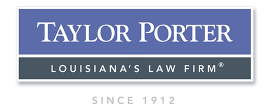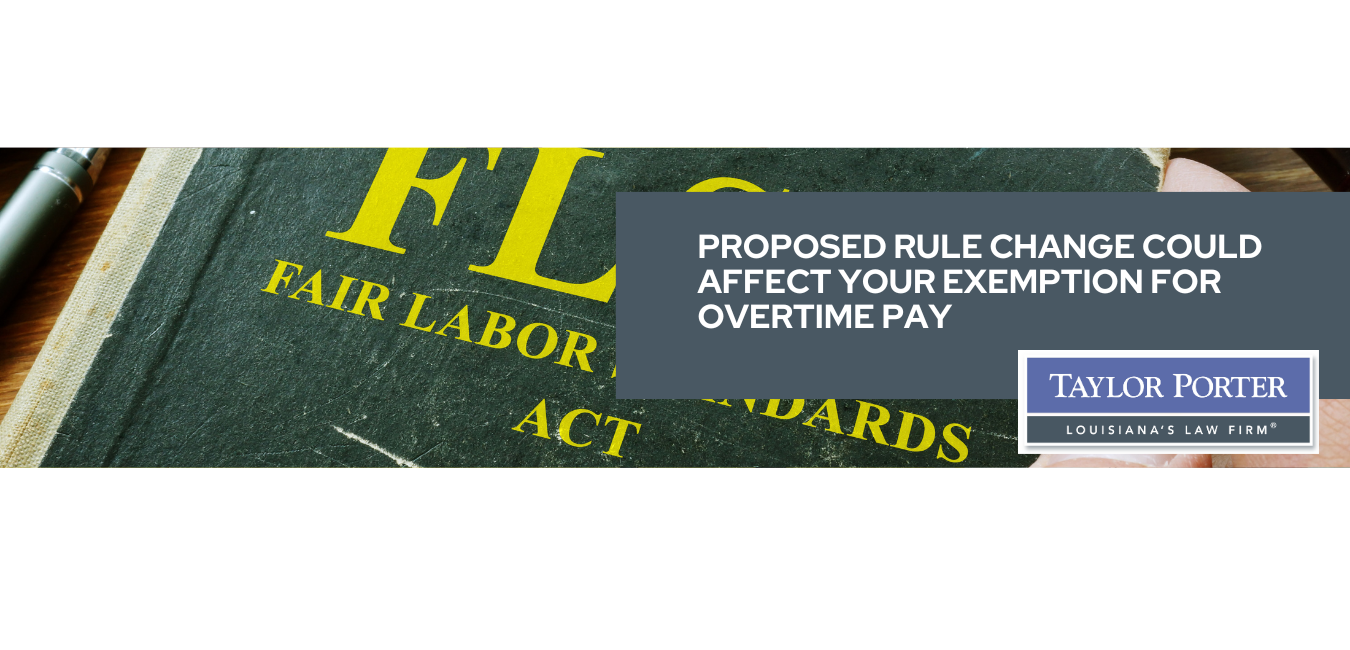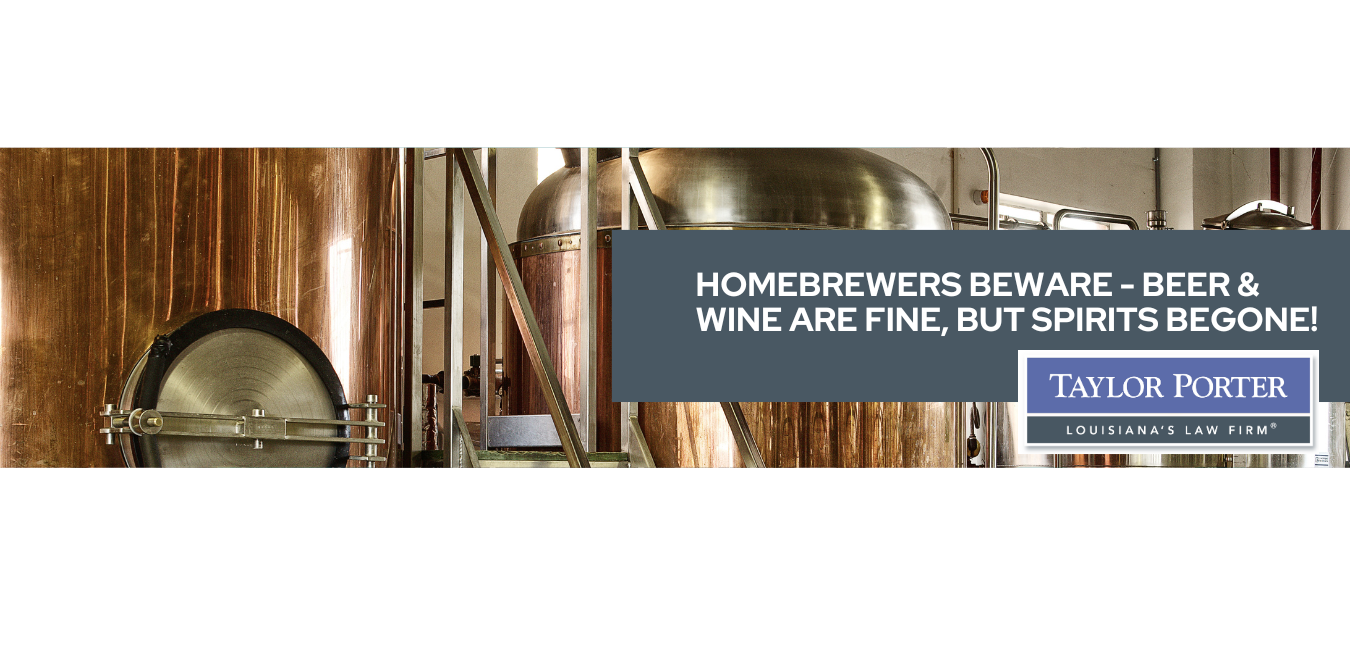Consolidated Appropriations Act Provides COVID-19 Relief, Including Changing Expense Deduction Rules

By Bob Barton – Managing Partner | bob.barton@taylorporter.com
On December 27, 2020, President Donald Trump signed into law the Consolidated Appropriations Act, 2021 (CAA), which was passed by Congress on December 21 and provides, among other things, important changes to the Paycheck Protection Program (PPP) established by the Coronavirus Aid, Relief, and Economic Security Act (CARES Act) and later amended by the Paycheck Protection Program Flexibility Act (PPPFA).
In our last alert on PPP loans, we highlighted that the IRS had issued guidance stating that PPP loan borrowers’ expenses would not be deductible if paid for with forgiven PPP loans. The CAA, however, clarifies that otherwise deductible expenses paid with proceeds of forgiven PPP loans will, in fact, be deductible. The language of the amendment clarifies that “no amount shall be included in the gross income of the eligible recipient by reason of forgiveness of indebtedness” and “no deduction shall be denied, no tax attribute shall be reduced, and no basis increase shall be denied, by reason of the exclusion from gross income.”
Additional COVID-19 relief provisions of the CAA include, but are not limited to, the following:
- Second Draw Loans. The CAA introduces a new round of PPP loans that will be available for both first-time qualified borrowers and certain eligible business that previously received PPP loans (the “PPP Second Draw Loans.”) PPP Second Draw Loans will be limited to $2 million and will only be available if a business (i) has used, or will use, the entire amount of its first PPP loan; (ii) has no more than 300 employees; and (iii) can demonstrate a 25% decline in gross revenue in any quarter in 2020 as compared to the same quarter in 2019. As with the first PPP loans, the second round of PPP loans may be 100% forgivable if used for payroll costs (with some exceptions) of up to 60% and non-payroll costs of up to 40%.
- Additional Eligible Expenses. Under the original PPP loan program, PPP loans were eligible for forgiveness if loan proceeds were used to pay qualified expenses including payroll, rent, covered mortgage interest and utilities. The CAA expands the eligible expenses for both old and new PPP loans to include covered operations expenditures, property damage costs, supplier costs, and worker protection expenditures. Notably, the eligible property damage expenses do not appear to include expenses for damage caused by hurricanes.
- Simplified Forgiveness Application. The new legislation provides for a simplified forgiveness application process for loans of $150,000 or less. Under the simplified application process, Borrowers may receive forgiveness if they submit to lenders a signed certification including (i) a description of the number of employees a borrower was able to retain due to receiving a PPP loan; (ii) the estimated total amount of a loan spent on payroll costs; and (iii) the total loan amount. The certification will require Borrowers to certify the accuracy of the information provided and compliance with the relevant requirements. By law, the SBA must create the simplified certification form within 24 days of the CAA’s enactment.
- Covered Period for Forgiveness. The CAA clarifies that the recipient of a PPP loan may select the ending date of the covered period for purposes of forgiveness of the loan. The covered period is the period beginning on the date of origination of a loan and ending on a date selected by the loan recipient, provided such ending date occurs sometime between 8 to 24 weeks after origination of the loan.
- Extension of Tax Credit for Paid Leave. The CAA addresses a tax credit recently enacted under the Families First Coronavirus Response Act (FFCRA). The FFCRA provides employers with a tax credit for Social Security taxes imposed on wages paid during the job-protected leave provided by the FFCRA if employees are unable to work for reasons related to COVID-19. The CAA extends the payroll tax credit through March 31, 2021 for employers who provide leave payments through that date. Leave payments are not required under the CAA, but employers may voluntarily provide FFCRA paid leave to employees. Employers that provide FFCRA paid leave will remain eligible to receive the corresponding tax credit until March 31, 2021.
- Extension and Modification of Employee Retention Tax Credit. The CAA also addresses the employee retention tax credit enacted under the Coronavirus Aid, Relief, and Economic Security Act (CARES Act). The CARES Act provided qualified employers the Employee Retention Tax Credit, which is a refundable tax credit (for Social Security taxes) up to 50% of the first $10,000 (per year) of qualified wages paid during the COVID-19 pandemic. The CAA modifies the Employee Retention Tax Credit by increasing the amount of the credit to 70% of the first $10,000 of qualified wages paid per quarter (rather than per year). The CAA also extends the expiration date of the tax credit to June 30, 2021 (from December 31, 2020). Moreover, the CAA clarifies that employers who receive a PPP loan could qualify for the Employee Retention Tax Credit with respect to wages that are not funded by PPP loan proceeds.
- 100% Deduction of Business Meal Expenses. From January 1, 2021 through December 31, 2022, business meal expenses “for food or beverages provided by a restaurant" are fully deductible. This change increases the current allowable deduction of 50% of costs incurred for business meals.
Taylor Porter attorneys continue to closely monitor the developments of the SBA loan programs and the CARES Act. Visit the Taylor Porter Coronavirus - Legal News and Business Resources website for updated legislation, news, and legal developments pertaining to COVID-19.
About Bob Barton: Taylor Porter Managing Partner Bob Barton, practicing law since 1994, represents local and national businesses in matters involving commercial litigation and transactions, regulatory and compliance matters, and general litigation. He is the co-chair of the firm's Business and Commercial Litigation practice. Bob has been selected for inclusion in both Louisiana Super Lawyers and Best Lawyers in Business Litigation.
This website is for general information purposes only. Information posted is not intended to be legal advice. For more information, please see our Disclaimer message.
See how we can help. Contact us today
8th Floor • 450 Laurel Street • Baton Rouge, LA 70801 • 225-387-3221
- Disclaimer
- © Taylor, Porter, Brooks & Phillips L.L.P. All rights reserved.






